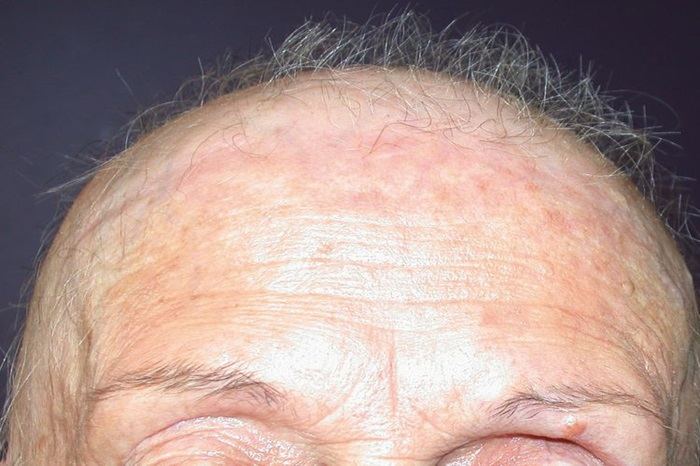Frontal fibrosing alopecia (FFA) is a type of hair loss condition that primarily affects the frontotemporal hairline, often leading to significant distress and concern for those affected. This article explores the autoimmune diseases linked to FFA, offering a comprehensive understanding of the underlying causes, symptoms, and treatment options.
What is Frontal Fibrosing Alopecia?
Frontal fibrosing alopecia is a condition characterized by progressive hair loss, particularly around the frontal hairline and temples. It often manifests as a receding hairline, with the hairline moving backward over time. In addition to hair loss, patients may experience other symptoms such as itching or burning in the affected areas.
Symptoms of Frontal Fibrosing Alopecia
Hairline Recession: The most noticeable symptom is the gradual recession of the hairline.
Scalp Changes: The affected areas may show signs of inflammation or scarring.
Itching and Burning: Some individuals experience discomfort or itching in the scalp.
Autoimmune Diseases Linked to Frontal Fibrosing Alopecia
1. Lichen Planopilaris (LPP)
Lichen planopilaris is an autoimmune condition that often leads to FFA. It is characterized by inflammation and scarring of the hair follicles, resulting in hair loss.
Pathophysiology of Lichen Planopilaris
Lichen planopilaris involves the immune system attacking the hair follicles. This attack leads to inflammation and scarring, which impairs hair growth and causes permanent hair loss.
Symptoms of Lichen Planopilaris
Scalp Itching and Burning: Patients may experience discomfort in the scalp.
Hair Loss: The hair loss is usually diffuse and affects the frontal and temporal areas.
Scarring: The affected areas may show signs of scarring.
2. Discoid Lupus Erythematosus (DLE)
Discoid lupus erythematosus is a chronic skin condition that can affect the scalp and lead to FFA. It is an autoimmune disease where the immune system attacks the skin.
Pathophysiology of Discoid Lupus Erythematosus
In DLE, the immune system produces antibodies that target skin cells, causing inflammation and damage. This damage can lead to hair follicle destruction and subsequent hair loss.
Symptoms of Discoid Lupus Erythematosus
Red, Scaly Lesions: The skin may develop red, scaly patches, especially on the scalp.
Hair Loss: The lesions can lead to hair loss in the affected areas.
Scarring: Long-term inflammation can cause scarring, which may result in permanent hair loss.
3. Alopecia Areata
Alopecia areata is another autoimmune disorder that can sometimes be associated with FFA. It is characterized by sudden, patchy hair loss.
Pathophysiology of Alopecia Areata
In alopecia areata, the immune system mistakenly attacks the hair follicles, leading to hair loss. While alopecia areata typically causes patchy hair loss, it can sometimes progress to more widespread forms, including FFA.
Symptoms of Alopecia Areata
Patchy Hair Loss: Hair loss occurs in small, round patches.
Scalp Sensitivity: The affected areas may be sensitive to touch.
Nail Changes: Some individuals may notice changes in their nails.
Diagnosis of Frontal Fibrosing Alopecia
Diagnosing FFA involves a combination of clinical examination and laboratory tests.
1. Clinical Examination
A healthcare provider will assess the hair loss pattern and any associated symptoms. The examination helps to differentiate FFA from other types of hair loss.
2. Scalp Biopsy
A scalp biopsy is often performed to examine the hair follicles under a microscope. This test helps to identify the characteristic patterns of inflammation and scarring associated with FFA.
3. Blood Tests
Blood tests may be conducted to rule out other autoimmune diseases or conditions that could be contributing to the hair loss.
SEE ALSO: Can Stress Cause Telogen Effluvium?
Treatment Options for Frontal Fibrosing Alopecia
While there is no cure for FFA, various treatment options can help manage symptoms and slow disease progression.
1. Topical Treatments
Topical corticosteroids are commonly used to reduce inflammation and control symptoms. They can help alleviate itching and inflammation associated with FFA.
2. Oral Medications
Oral corticosteroids or immunosuppressive medications may be prescribed to control the immune system’s activity and reduce inflammation.
3. Phototherapy
Phototherapy involves exposing the affected areas to ultraviolet light. This treatment can help reduce inflammation and promote hair regrowth in some cases.
4. Hair Transplant Surgery
For some individuals, hair transplant surgery may be an option to restore hair growth in the affected areas. However, this approach is usually considered only after other treatments have been exhausted.
Living with Frontal Fibrosing Alopecia
Managing FFA can be challenging, both physically and emotionally. Support from healthcare professionals, family, and support groups can be beneficial.
1. Emotional Support
Counseling or support groups can help individuals cope with the emotional impact of hair loss. Connecting with others who have similar experiences can provide comfort and understanding.
2. Hair Care
Using gentle hair care products and avoiding harsh treatments can help minimize scalp irritation and damage.
3. Regular Check-Ups
Regular visits to a healthcare provider are essential to monitor the condition and adjust treatment plans as needed.
Conclusion
Frontal fibrosing alopecia is a complex condition often associated with autoimmune diseases such as lichen planopilaris, discoid lupus erythematosus, and alopecia areata. Understanding the underlying causes and available treatment options can help manage symptoms and improve quality of life for those affected. If you suspect you have FFA or are experiencing hair loss, consult a healthcare provider for an accurate diagnosis and personalized treatment plan.

